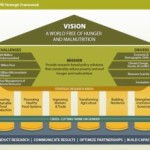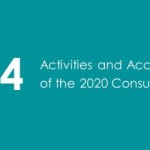“Resilience will pay dividends for fragile communities who today face environmental, economic and nutritional bankruptcy. For the people in communities affected by droughts, floods and other shocks, a resilience approach allows multiple entry points for action that can both restore the productivity of lands and significantly improve well-being. Empowering resilient families to withstand shocks can reduce – even by half – the likelihood that children will become malnourished.”
Erthrain Cousin, Executive Director of the United Nations World Food Programme (WFP), included the above remarks during her keynote address at the 2020 Conference on “Building Resilience for Food and Nutrition Security” last night in Addis Ababa, Ethiopia. Cousin went on to lay out her argument that, while the costs of investing in resilience may be high, the costs of failing to invest will be far greater. “(F)or every dollar, euro, or birr spent on resilience, there is a benefit of up to thirteen back. By investing in resilience, we invest in efficiency.”






